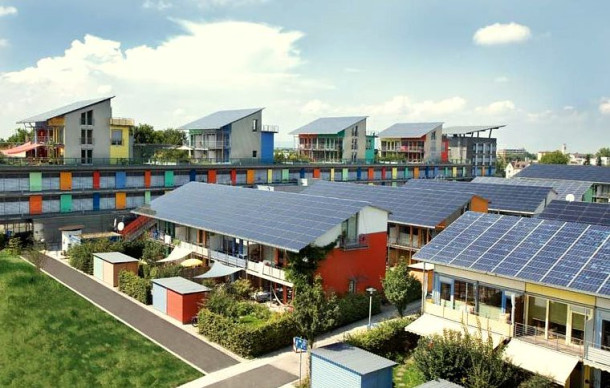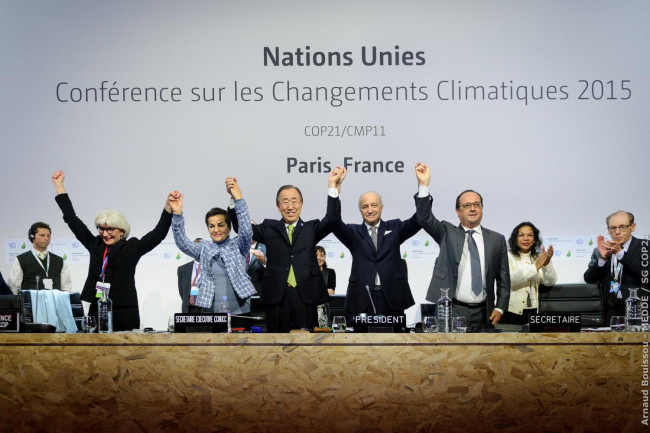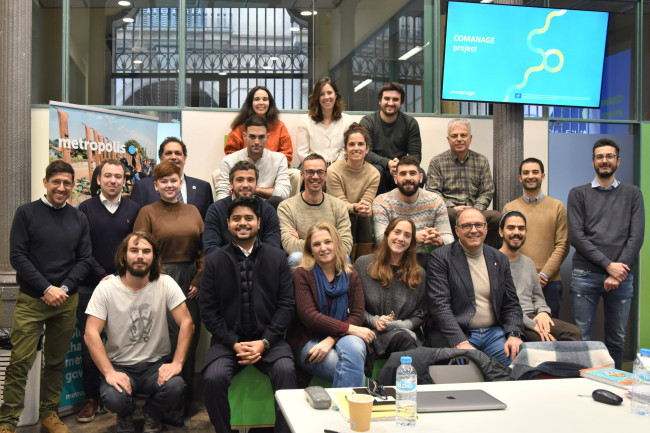
Photo: naturalflow (CC BY-SA 2.0)
Energy communities, a turning point in the transition to clean energy
The global energy crisis is having a life-shattering impact on thousands of hundreds of millions of people. Facing this alarming situation, the United Nations is calling for energy policy measures that link the need for urgency and long-term sustainable development.
Being the place where more than half of the world’s population live, large cities and metropolitan areas have become the key actors to mitigate the impact of complex emergencies and the turning point towards energy resilience.
To deliver on the Paris Agreement commitments for reducing greenhouse gas emissions and move away from fossil fuels towards cleaner energy, the European Union adopted in 2019 the ‘Clean Energy for all Europeans Package’, which was followed by hundreds of projects boosting energy communities and prosumership. These communities are legal entities that empower citizens, small businesses and local authorities to produce, manage and consume their own energy and are becoming a model of raising action in the clean energy transition. A shared goal among these projects is to place the consumer at the heart of the energy transition and trigger citizen-driven actions that contribute to the clean energy transition, advancing energy efficiency within local communities. As a result, over the last years, several new citizens-led energy initiatives have been launched.

Paris Agreement, COP 21 in Paris, 2015
However, the practical experience has made it evident that – once started – energy communities projects often struggle to take off. The year 2022 came to an end with the kick off in Barcelona of COMANAGE – a three-year EU sponsored project that aims to facilitate sustainability and growth in renewable energy communities by co-creating an open-source toolkit to support their governance and management. Through this project, Metropolis is joining forces with nine other organizations and regions to pave the road to success for energy communities all across Europe.
COMANAGE is conceived to respond to the need for energy communities to overcome the multiple barriers that impede their longevity and prosperity. Practical evidence of energy communities around Europe shows that legal, administrative, financial, social, and organizational barriers are making difficult to manage and govern energy community initiatives properly and to establish appropriate follow-up and long-term sustainability roadmaps.

Representatives of the partner organizations of COMANAGE, during the kick off meeting in Barcelona
With the intention of identifying and counteracting these barriers, the partners of COMANAGE will join forces during three years to tackle the main governance and management barriers and challenges faced by citizen-led and public-participated energy communities’ projects.
By equipping local, metropolitan, and regional governments with a methodological framework and a practical toolkit, the project will allow and facilitate the collaboration between administrations and citizens in energy projects. They will do so by creating a methodological and operational Energy Communities Governance Framework, and by equipping public administration involved in energy communities’ projects with a set of integrated services, supporting mechanisms and tools aimed at facilitating the management and governance of energy communities, ensuring their growth and sustainability in the medium and long term: the Energy Communities Governance Toolkit- ECGT.
In the field, the lessons learned and tools created will be implemented and tested in three Pilot Cases represented in the consortium by the Metropolitan Area of Barcelona in Spain, the Krakow Metropolis Association in Poland, and the Lazio National Association of Italian municipalities in Italy.
